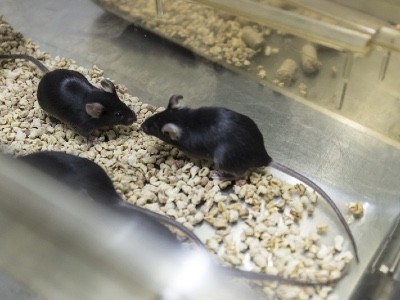
Cellular measures of ageing changed more slowly in the liver, brain and other tissues of monkeys taking the drug metformin.Credit: Vachira Vachira/NurPhoto/Getty
A low-cost diabetes drug slows ageing in male monkeys and is particularly effective at delaying the effects of ageing on the brain, finds a small study that tracked the animals for more than three years1. The results raise the possibility that the widely used medication, metformin, could one day be used to postpone ageing in humans.
Monkeys that received metformin daily showed slower age-associated brain decline than did those not given the drug. Furthermore, their neuronal activity resembled that of monkeys about six years younger (equivalent to around 18 human years) and the animals had enhanced cognition and preserved liver function.
This study, published in Cell on 12 September, helps to suggest that, although dying is inevitable, “ageing, the way we know it, is not”, says Nir Barzilai, a geroscientist at the Albert Einstein College of Medicine in New York City, who was not involved in the study.
Medicine-cabinet staple
Metformin has been used for more than 60 years to lower blood-sugar levels in people with type 2 diabetes — and is the second most-prescribed medication in the United States. The drug has long been known to have effects beyond treating diabetes, leading researchers to study it against conditions such as cancer, cardiovascular disease and ageing.
Reversal of biological clock restores vision in old mice
Data from worms, rodents, flies and people who have taken the drug for diabetes suggest the drug might have anti-ageing effects. But its effectiveness against ageing had not been tested directly in primates, and it is unclear whether its potential anti-ageing effects are achieved by lowering blood sugar or through a separate mechanism.
This led Guanghui Liu, a biologist who studies ageing at the Chinese Academy of Sciences in Beijing, and his colleagues to test the drug on 12 elderly male cynomolgus macaques (Macaca fasciucularis); another 16 elderly monkeys and 18 young or middle-aged animals served as a control group. Every day, treated monkeys received the standard dose of metformin that is used to control diabetes in humans. The animals took the drug for 40 months, which is equivalent to about 13 years for humans.
Over the course of the study, Liu and his colleagues took samples from 79 types of the monkeys’ tissues and organs, imaged the animals’ brains and performed routine physical examinations. By analysing the cellular activity in the samples, the researchers were able to create a computational model to determine the tissues’ ‘biological age’, which can lag behind or exceed the animals’ age in years since birth.
Slowing the clock
The researchers observed that the drug slowed the biological ageing of many tissues, including from the lung, kidney, liver, skin and the brain’s frontal lobe. They also found that it curbed chronic inflammation, a key hallmark of ageing. The study was not intended to see whether the drug extended the animals’ lifespans; previous research has not established an impact on lifespan2 but has shown lengthened healthspan3 — the number of years an organism lives in good health.
This means that metformin can “effectively rewind organ age” in monkeys, Liu says. The authors also identified a potential pathway by which the drug protects the brain: it activates a protein called NRF2, which safeguards against cellular damage triggered by injury and inflammation.
This study is the “most quantitative, thorough examination of metformin action that I’ve seen beyond mice”, says Alex Soukas, a molecular geneticist at Massachusetts General Hospital in Boston. “It was a surprise to see how comprehensive [the drug’s] effects were across tissue types.”
Low-cost drug, high-cost trial
Although these results are encouraging, much more research will be necessary to study the drug before it’s validated as an anti-ageing compound in humans, Liu says.
The fraught quest to account for sex in biology research
For one, only 12 monkeys received the drug. Soukas says he would therefore like to see a replication of this effort or a study that includes more animals. Furthermore, the researchers tested only male animals, which Rafael de Cabo, a translational geroscientist at the National Institute on Aging in Baltimore, Maryland, says is concerning. He acknowledges that it is extremely expensive to run this type of long-term experiment, but adds that it is crucial to understand ageing in females as well, given that there are often large differences between the sexes.
In the meantime, Liu and his colleagues have launched a 120-person trial in collaboration with the biopharmaceutical company Merck in Darmstadt, Germany, which developed and manufactures metformin, to test whether the drug delays ageing in humans.
Barzilai has even bigger ambitions: he and his colleagues have been spearheading an effort to raise US$50 million to study the drug in a trial of 3,000 people aged 65–79 over 6 years. Research into metformin and other anti-ageing candidates could one day mean that doctors will be able to focus more on keeping people healthy for as long as possible rather than on treating diseases, he says.



